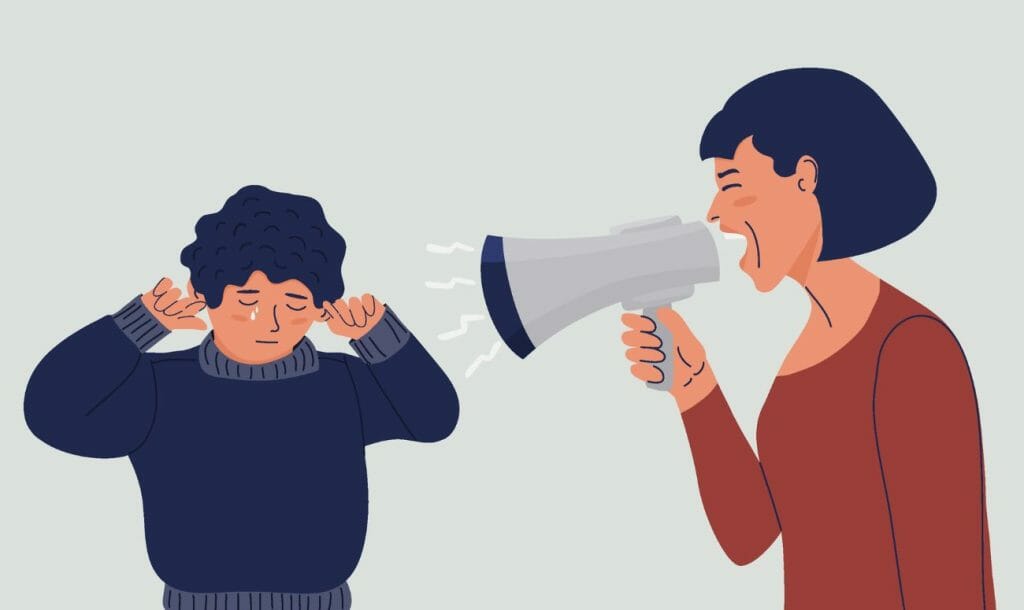We as parents start setting the bar high for our kids as soon they are accepted in a ‘good’ playschool. No matter how much our kids do, or don’t, we as parents think that it is our duty to put more pressure on them to do better – academically, socially, or even appearance-wise. However, this doesn’t hold true in the longer run. But why do we, as parents, put pressure on our kids? Do we ever consider how it affects their mental health?
A 2021 study by PubMed Central mentions that most parents pressure their kids because they themselves grew up with distant parents, and now mistake attention for pressure. Even professional issues, like a layoff or work-related stress, and personal issues like divorces or the death of a family member often result in a parent trying to cover up quality time with parental pressure leading to a decline in the child’s mental health.

Yes, a good dose of pressure does well. But when this pressure becomes all-pervasive that it leads to friction, back-talk from your kids, or even worse – your kid retreating into their shell – it is time to take a look at your approach. Are you putting too much pressure on your kids? Is it doing more harm than good? Is your kid even performing decently well with all that pressure? Is it affecting their mental health? Pressure to perform better, compete better, and score better, adds much chagrin to the developing minds. While the parental pressure might stem from good intentions, kids who grow up with unrealistic expectations or excessive parental pressure are more prone to:
- Experiencing depression
- Eating disorders
- Aggression
- Negative self-talk
- Anxiety
- Low self-esteem
In the longer run, setting high standards of how your child should perform or look might make it difficult for them to maintain healthy relationships as they grow older. All kids need a guide and a nurturer rather than someone criticizing them at every step, or pushing them beyond their capacity.
Emotion
As a parent, you need to create a healthy environment in the house – where arguments don’t lead to guilt-tripping your child. You need to validate the emotions of your child regularly so that they grow to be an emotionally balanced individual. An emotionally balanced kid will not feel odd or scared to approach you in case of any academic or personal issues. However, before becoming a guide for your child, make sure that your emotions are under check and that you do not carry the emotional baggage from your childhood into your kid’s life.
Encourage

It is a given that you can do things in a much better way/foresee better than your child, but for them to learn better and on their own, encourage each of their small efforts rather than criticizing them. Do not focus only on marks, but on the efforts they are putting in. A child who is regularly encouraged tends to perform better than the one doing things just to avoid a scolding.
Engage
Engage your child in household chores. Even small accomplishments around the house can give them a big morale boost. Once they start doing things around the house, you would also ‘see’ for yourself that an all-around development is more important than standing on the podium.
Experience
Not everyone can excel at everything. However, what you can do is gift your child multiple experiences. It can range from doing Seva at a Gurudwara to visiting a dog shelter, from swimming to taking a dip in a village pond, from playing chess to chasing butterflies. Let them open up their minds before asking them to participate in the rat race. Let your child choose their calling, and even if s/he wishes to be a jane/jack of all trades, create an environment for them to grow.
Empathize
As a parent, be an enabler in your child’s life. Empathize with them rather than forcing them to stretch themselves thin. This will only lead to burnout and a decline in mental health. In all probability, the child will start avoiding all activities if s/he sees it as another excuse for you to push them to perform better.
Each day, make it a point to sit with your child to talk about the issues they are facing – it can range from a math sum that they are having trouble with to an argument with a classmate. You can also try to meditate with your child each day, and then talk about these issues to know that you are there for your child every step of the way – not ahead or behind them – but right beside them. And if you think that this is not helping, and you are unable to mold your behavior, please consult a mental health professional.
Ananya is a WFH mother to an eight-year-old.
Read More: 5 Minute Tips – How to Improve Your Emotional Health and Wellbeing
Like & Follow ThinkRight.me on Facebook, Instagram, Twitter, Pinterest and Telegram to stay connected.






























